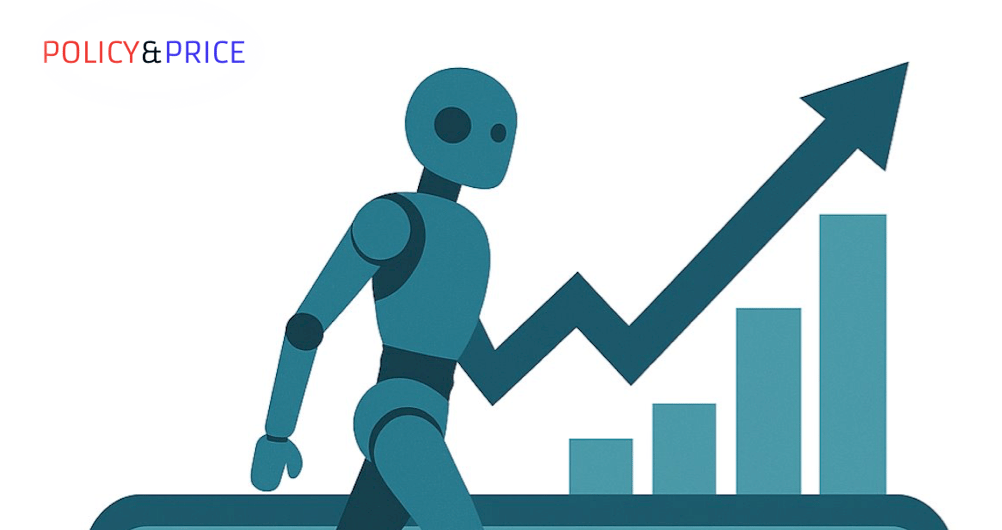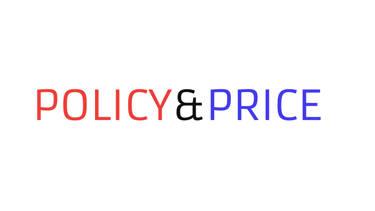Why Market's Alone Won't Replace the Human Workforce with AI
Explaining why a big fear in society won't come true due to supply and demand.
Oliver Bennett
7/12/20254 min read


AI impresses me continuously. I’ve been using it for a long time now, to search up stats, definitions and even to question what economists of the past truly meant in their thinking. The efficiency and ease that AI produces, without a doubt means it will be (and already has been) incorporated into firms production processes and operations. However, even with my interest for AI - further analysis into intwining AI into the labour market, conveyed to me that large corporations in a competitive market economy would reject the over use and especially over dependence of AI, not due to an ethical conscience but to maintain aggregate demand as profit maximisers.
I'd like to stress, that while this article is not assuming the conditions of a free market, we are assuming that their has been no regulations set by the government to stop corporations from replacing humans with AI. Realistically, if this did become a threat, then most governments probably would set regulations as a precaution, however, this article aims to show why markets alone (in a time period before government regulations could intervene, but not necessarily in a free market), wouldn't replace the human workforce with AI.
This is certainly not me campaigning against AI and the use of it, however, AI should work along side the human workforce, not dominate it, even in a liberalised market. This is simply to protect firms from underconsumption of goods and services. But why would AI not prevail? Aren't markets, large corporations and employers incentivised by the low costs AI offer? Well, it’s all stopped by this one little idea.
Let’s imagine a situation where firms choose to replace their workers with cheaper, more efficient AI systems, instead of human beings. AI systems reduce costs compared to human labour, and once trained, the scalability of an AI model is limitless. Furthermore, AI doesn’t take sick days or go on strike. Therefore, in this situation, costs would go down, productivity would increase and life would be a lot easier for the higher ups of big firms. However, there is a very obvious problem which I hinted at earlier, replacing humans as employees, also eliminates their ability to be consumers. The replacement of too many humans essentially leads to firms erasing their own customer base, as a large majority of previous consumers can no longer afford to buy anything. As incomes decline significantly, due to mass unemployment, aggregate demand falls and there would be huge underconsumption in markets. Ultimately, above efficient workers, low costs and scalability, a firms number one priority in any economy is its consumers and the ability to make profit - there can be no profit without consumers. With previous consumers on no income, firms have no one to sell to, despite their impressive and efficient AI systems.
You could compare replacing humans with AI across the workforce, to a football team selling their top goal scorer to cut costs - when it can still afford their salary - and then they stop winning since no body else can score. Consistent losses leads to a huge fall in ticket sales as fans lose interest and the club folds due to a lack of revenue from ticket sales. They saved money in the short term, but they’ve lost the very thing that made them any profit in the first place - revenue from their fans.
The idea that this slightly stretched but hopefully useful analogy will portray is that while corporations and economic systems look to pursue efficiency (parallel to the club cutting costs), over relying on AI will only cause more problems, problems that weren’t there before - problems that could lead to a supply-only economy. After all, you can’t have a market with only producers and no consumers. Consumers are the star player - the top goal scorer. The whole idea of a market relies on participation from both sides, which is made difficult, in fact, impossible with an employment wipeout due to AI.
In the context of any economic system (free market, mixed economy, etc.) this conclusion that there can be supply through an AI workforce that won’t be met by demand, due to a lack of income on the consumers end, challenges Say’s Law. Say’s Law suggests that supply creates its own demand. In simple terms, if you make goods, people will have the means to buy goods because workers get income from making the goods, which they can then spend on other goods. However, if AI can make goods or supply services, without consumers gaining incomes, then there will be no demand, but still supply. Similarly, John Maynard Keynes argued against Say’s Law, arguing that factors such as saving too much (as well as others) in times of economic downturn would mean production doesn’t always generate enough demand to buy all goods.
To be fair to Jean Baptiste Say, in the context of AI, when he articulated Say’s Law in 1803, I don’t think he exactly had Artificial Intelligence taking over the labour market on his mind. Despite this, I thought it would be interesting to show how innovations in technologies and other factors, can complicate and often clash with economic theory as we advance in modern society.
I’d like to emphasise that this is not me saying that AI won’t replace some jobs, simply put, there are some jobs that can be done by AI and probably better as well. Jobs that carry out routine administrative tasks or any sort of data processing are very likely to be replaced with AI due to them being repetitive and quicker for an AI system to perform. Furthermore, corporations will - and already have started - to use AI alongside humans in the day to day running of the business, for example many companies now have an AI chatbot in place to assist customers, and then, if needed, customers can then ask to chat to a human if they require further assistance. However, I’m concluding that a total and all out replacement of the majority of the current workforce with AI systems simply couldn’t and wouldn’t work as there would be a large underconsumption.
Therefore in any economy, under assumptions made by standard economic theory where firms are profit maximisers and resources are allocated efficiently, firms wouldn’t choose AI over humans as this would reduce their ability to make any profit, let alone maximise it. While there would be supply, which may be produced even more efficiently than that of right now, high unemployment would mean there would be no demand to match the supply. This concludes, that firms would opt against a total replacement of the human workforce with AI systems, and instead opt for a workforce where AI works alongside humans and helps (human) worker productivity, in order to increase efficiency.
Economic Analysis. Political Analysis. Insightful Analysis.
Explore political and economic affairs with us.
© 2025. All rights reserved.


